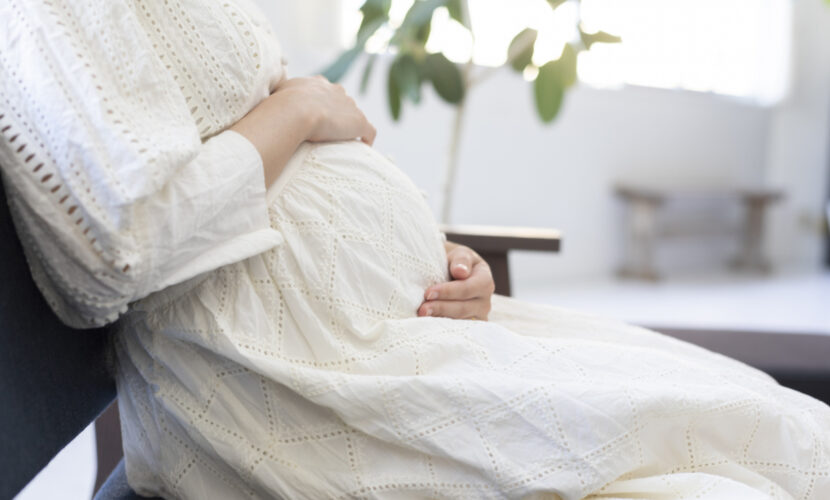During pregnancy, the mother needs to pay more attention to her diet in order to protect the growth of the baby and her own health. It is especially important to have a sound knowledge of the foods that should not be eaten and those that should be avoided.
Knowing what to avoid and what to consume to ensure proper nutrition and avoid risks will help ensure the healthy development of your baby. Here we will discuss in detail the foods to avoid and safe food choices during pregnancy.

Graduated from the Faculty of Medicine, National Kumamoto University. After serving as the director of major beauty clinics in Japan, etc., he opened Aladdin Aesthetic Clinic in 2023. He is a professional in aesthetic medicine with a doctorate in anti-aging research and many years of experience. With the motto of "Toward the realization of cosmetic medicine without lies," he aims to be the "Only One" together with his patients.
What foods are bad during pregnancy? Basic Guidelines

During pregnancy, there are several foods to avoid because of concerns about food-borne infections and their effects on the fetus. To protect the healthy growth of your baby, make sure you understand these basic guidelines.
| foodstuff | risk |
|---|---|
| Raw fish and meat | Listeria monocytogenes, Toxoplasma (risk of miscarriage and premature birth) |
| Uncooked eggs and dairy products | Salmonella and Listeria (risk of miscarriage and premature birth) |
| High concentrations of caffeine | Adverse effects on the fetus (risk of miscarriage, low birth weight) |
Raw fish and raw meat|Risk of food poisoning and infection
During pregnancy, it is important to avoid raw fish and raw meat because the risk of food poisoning and infection from food is higher than normal. In particular, eating raw meat and fish, such as sashimi, sushi, raw steak, cured ham, and tartar steak, increases the likelihood of getting an infection called Listeria monocytogenes or Toxoplasma.
Listeria can be transmitted to the fetus through the placenta and cause risk of miscarriage, premature delivery, and even stillbirth. Toxoplasma can also cause birth defects in babies, and the risk is especially high if the infection occurs early in pregnancy.
When handling raw meat or fish, it is important to prevent cross-contamination by thoroughly washing hands after touching the food and separating utensils, cutting boards, and knives.
In addition, cooking all meats and fish thoroughly is the most effective measure to significantly reduce the risk of such infections. For example, meat should be cooked to an internal temperature of at least 75°C (75°F), and seafood should be cooked so that it is thoroughly cooked through to the center.
Unheated eggs and dairy products|Salmonella and Listeria hazards
Uncooked eggs, natural cheese, and unpasteurized milk are foods that require special attention during pregnancy. These foods may contain Salmonella and Listeria monocytogenes, which can have serious consequences if infected.
Salmonella infections can cause severe gastroenteritis, diarrhea, and fever, leading to loss of strength and dehydration, which is a major burden for pregnant women. In addition, Listeria infections pose a serious health risk to the fetus, increasing the likelihood of miscarriage or premature birth.
To avoid these risks, it is recommended that eggs always be cooked until completely set and that half-cooked or raw eggs be avoided. When cooking eggs, it is important to ensure that the eggs are cooked all the way through and that the raw egg whites and yolks are set. Furthermore, it is recommended that cheese be heat-treated (pasturized) rather than unpasteurized, such as natural cheese or blue cheese. For milk as well, one should always choose pasteurized milk and avoid unpasteurized milk.
High Concentration of Caffeine|Effects on the Fetus
Caffeine has been shown to adversely affect the fetus if too much is consumed during pregnancy. Caffeine passes through the placenta and affects the fetus, but because the fetus' body's ability to metabolize caffeine is immature, it tends to remain in the body for a long time.
This can be problematic and increase the risk of miscarriage, low birth weight, and even future developmental problems. Particularly in early pregnancy, excessive caffeine intake has been reported to increase the risk of miscarriage, and pregnant women should be very careful about their caffeine intake.
In general, it is recommended that caffeine intake during pregnancy be kept below 200 mg per day. This is equivalent to about 1-2 cups of coffee or 3-4 cups of tea. However, since caffeine is found not only in coffee, but also in black tea, green tea, colas, energy drinks, chocolate, etc., the total intake should be considered.
If caffeine intake is a regular part of your routine, switch to caffeine-free decaf coffee or herbal teas. Even if you are looking for a relaxing effect, some herbal teas should not be consumed during pregnancy, so check carefully before choosing one.
Important nutrients in the diet during pregnancy and how to consume them!

During pregnancy, a well-balanced diet is essential to protect the health of both mother and baby. In particular, folic acid, iron, and calcium are known to be important nutrients during pregnancy, and it is important to be conscious of their intake. Here we will explain in detail the role of each nutrient and how to efficiently consume them.
Importance of folic acid and how to consume it
Folic acid is an essential nutrient in fetal development, especially in early pregnancy, and plays a role in preventing birth defects such as neural tube defects. Folic acid is also necessary for the production of red blood cells and must be actively consumed during pregnancy, when the mother's blood volume increases. Since folic acid is sensitive to cooking, it is recommended to consume it from raw or lightly steamed vegetables.
- spinach
- broccoli
- avocado (Persea americana)
- edamame (green soybeans)
- lentil
Foods recommended for efficient folic acid intake include spinach, broccoli, and avocado, which are ideally eaten in salads or lightly steamed. It is also recommended that pregnant women supplement with supplements, especially in early pregnancy when folic acid is easily deficient.
Importance of iron and how to consume it
Because blood volume increases during pregnancy, it is important to consume iron-rich foods. Iron plays a role in supplying oxygen to mother and baby, and pregnant women are especially prone to iron deficiency anemia. There are two types of iron: heme iron, which is found in animal foods and is easily absorbed, and nonheme iron, which is found in plant foods.
- Red meat (*must be cooked thoroughly)
- Chicken (*must be cooked thoroughly)
- Mackerel, sardines, etc. (*must be thoroughly cooked)
- spinach
- lentil
*"Liver" is also a no-no for everything that is cooked, if possible.
When consuming iron, red meat, poultry, and fish are good choices. In addition, to increase iron absorption, it is effective to consume vitamin C together. For example, when eating chicken and lean meats, take foods that contain vitamin C, such as citrus fruits and green peppers, together to improve iron absorption.
Importance of calcium and how to consume it
Calcium is essential for the formation of the baby's bones and teeth. It is also needed to maintain the mother's bones, and calcium deficiency during pregnancy can increase the mother's risk of osteoporosis later in life. Adequate calcium intake can support healthy bone formation for the baby.
- (cow's) milk
- yogurt
- Cheese (*heat-treated, natural cheese NG)
- Small fish such as shirasu and iwashi (*cooked)
- Soybean products (tofu, natto)
Dairy products (milk, yogurt, etc.) are the best source of calcium for efficient intake. In addition, small fish (shirasu, sardines) and soy products (tofu, natto) are also rich sources of calcium. In addition, since calcium absorption is accelerated when taken together with vitamin D, exposure to sunlight and foods containing vitamin D are also important.
How to choose foods that are safe to eat during pregnancy
Of particular interest are vegetables, fruits, and whole grains. Vegetables and fruits are rich in vitamins, minerals, and fiber, which not only aid digestion but also help prevent constipation. Spinach and broccoli, for example, are rich in folic acid, which supports the development of the baby's nervous system.
Whole grains (such as brown rice and whole grain bread) also contain more dietary fiber and B vitamins than white rice and white bread, and are an excellent source of energy. By incorporating these grains into your diet in a well-balanced manner, you can ensure that you are getting a good amount of nutrition from your daily meals.
On the other hand, it is still possible to enjoy snacks and light meals during pregnancy. However, it is important to choose nutritionally balanced foods rather than junk foods that are high in additives and sugar. For example, nuts (unsalted almonds and walnuts) contain vitamin E and good fats, which help reduce blood sugar spikes. Greek yogurt with fruit is rich in calcium and probiotics and can aid digestion.
Other safe and easy snacks include baked potato chips (*do not overeat) and smoothies. Baked potato chips contain less oil than regular fried chips, which helps reduce calories and fat, which you do not want to consume in excess during pregnancy. Smoothies are an easy way to make nutritious drinks by simply blending fruits and vegetables in a blender. In particular, the addition of fruits such as bananas and blueberries, along with spinach and kale, provides vitamins and minerals all at once.
Safe Preparation of Foods to Watch Out For During Pregnancy

As mentioned above, we have introduced some bad and OK foods, but it is important not only to choose the right ingredients, but also to pay sufficient attention to the cooking process to protect the health of the baby. In order to reduce the risks associated with foods and to enjoy eating with peace of mind, we will explain in detail the sanitary control of food cleaning, heating, and the cooking process.
Cleaning and safe preparation of raw vegetables and fruits
While it is recommended to consume a variety of nutrient-rich raw fruits and vegetables during pregnancy, there are risks associated with eating raw. To minimize the risk of food poisoning from pesticides, bacteria, and parasites (such as toxoplasma), fruits and vegetables should be carefully washed. In particular, fruits and vegetables that are eaten with their skins are safe to wash thoroughly under running water and peel if possible.
When cleaning, food can be handled more safely by using a special vegetable cleaner or by soaking the food in water with a small amount of vinegar added before rinsing. Also, carefully rinsing leafy greens, berries, and other hard-to-wash foods with water can remove pesticides and bacteria.
Appropriate cooking temperatures for foods requiring heating
Foods that require heating include meat, seafood, eggs, and dairy products, among others. Heating these foods thoroughly reduces the risk of bacteria and viruses that can cause foodborne illness. During pregnancy, it is recommended that the following cooking temperatures be used to ensure safe eating
| foodstuff | Cooking temperature and method |
|---|---|
| meat products in general | Heat until internal temperature is 75°C or higher. If the center is pink, heat further. |
| seafood | Avoid raw or semi-raw fish, and cook fish thoroughly to the center. |
| egg | Avoid raw or half-cooked eggs and cook until yolks are completely set. Fried eggs, etc., should also be thoroughly cooked. |
Sanitation of cooking utensils is also important. The risk of cross-contamination increases if knives and cutting boards used to cut raw meat and fish are used directly for vegetables. It is essential to separate cooking utensils for each ingredient or to wash and sanitize them immediately after use.
Methods to avoid mixing of ingredients (prevention of cross-contamination)
Cross-contamination is one of the most important things to be aware of during pregnancy and in normal eating. This is one of the factors that increases the risk of foodborne illness when bacteria or viruses are transferred to different foods during the food preparation process. Especially when handling raw meat and fish, it is very important to avoid direct contact with other foodstuffs. By practicing the following measures, cross-contamination can be prevented and food preparation can proceed safely.
First, separating cutting boards and knives is fundamental. Preparing cutting boards and knives specifically for raw meat and fish, and separating cooking utensils from uncooked foods such as vegetables and bread can reduce the risk of cross-contamination. Recently, color-coded cutting boards and knife sets are commercially available, and using them is one good option.
Next, organization in the refrigerator is also important. When storing raw meat and fish in the refrigerator, be sure to place them in plastic wrap or airtight containers to avoid direct contact with other foods. In addition, pay attention to where they are stored in the refrigerator. Placing raw meat and fish in the lower section of the refrigerator will prevent the risk of accidental leaks of juices onto other foods.
And thorough hand washing is also essential. Make it a habit to wash your hands immediately after touching raw foods, even while cooking. Washing hands thoroughly with soap and running water, especially after touching raw meat or fish, will help prevent the spread of bacteria through the hands. By practicing these measures, you can greatly reduce the risk of food poisoning and keep your diet safe.
summary
During pregnancy, it is extremely important to make food choices that put your baby's health first. By knowing what foods to avoid and what to watch out for, such as raw fish, alcohol, and excessive caffeine, and by ensuring a safe and nutritionally balanced diet, you can have peace of mind. In addition, do not make judgments on your own, but rather consult the advice of a medical specialist to support a healthy life for both mother and child by ensuring that you are getting the proper nutrients you need.
At Aladdin Aesthetic Clinic, based on our many years of experience in cosmetic medicine and cosmetic dermatology and the knowledge of our doctoral degree, we provide counseling that aims to be "only one", offering the best treatment for each person we meet. We offer only the necessary treatments without any unnecessary information or suggestions.
Feel free to use our official LINE account for 24-hour counseling and reservations. Please feel free to contact us for free counseling for the first time or if you have any concerns.






